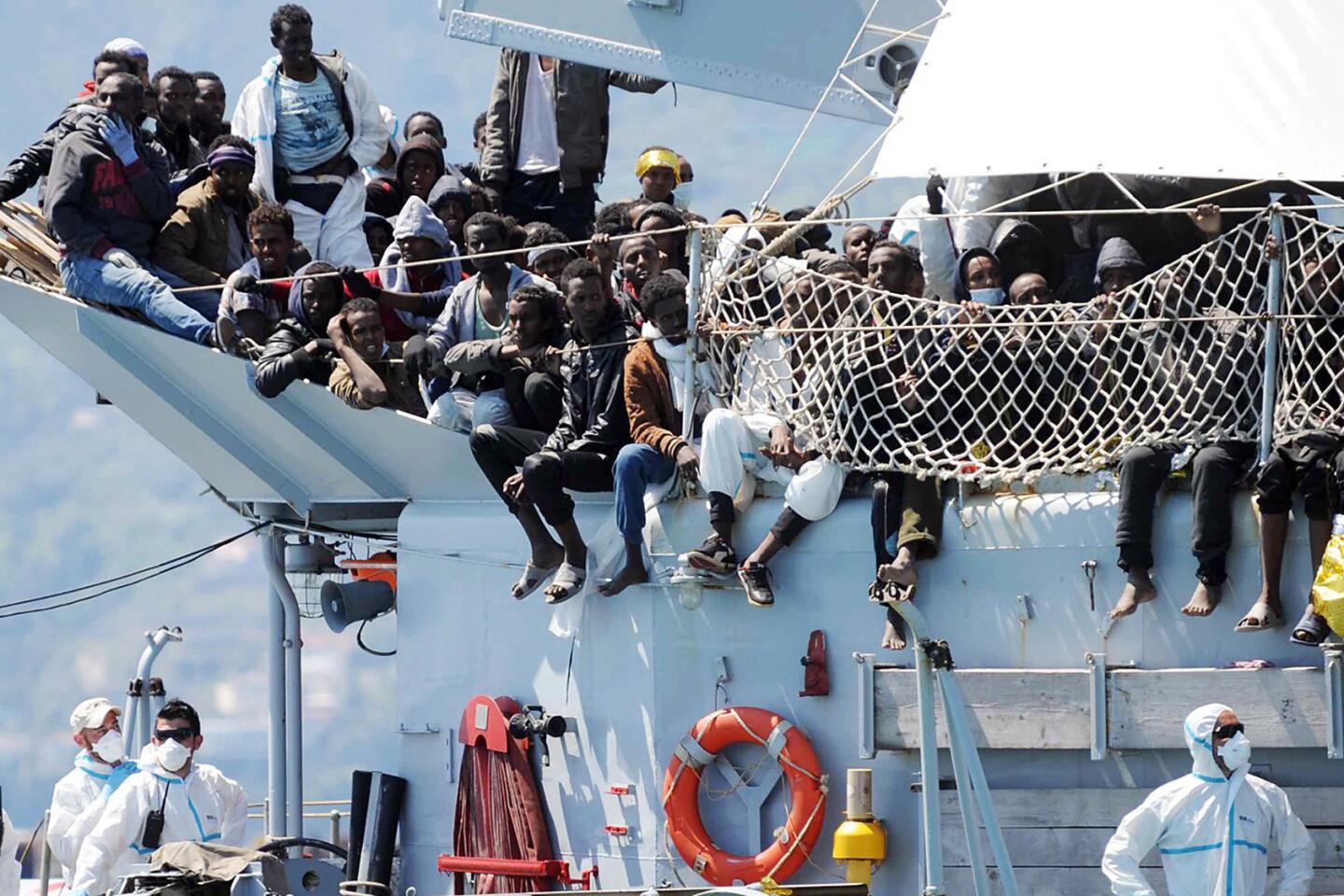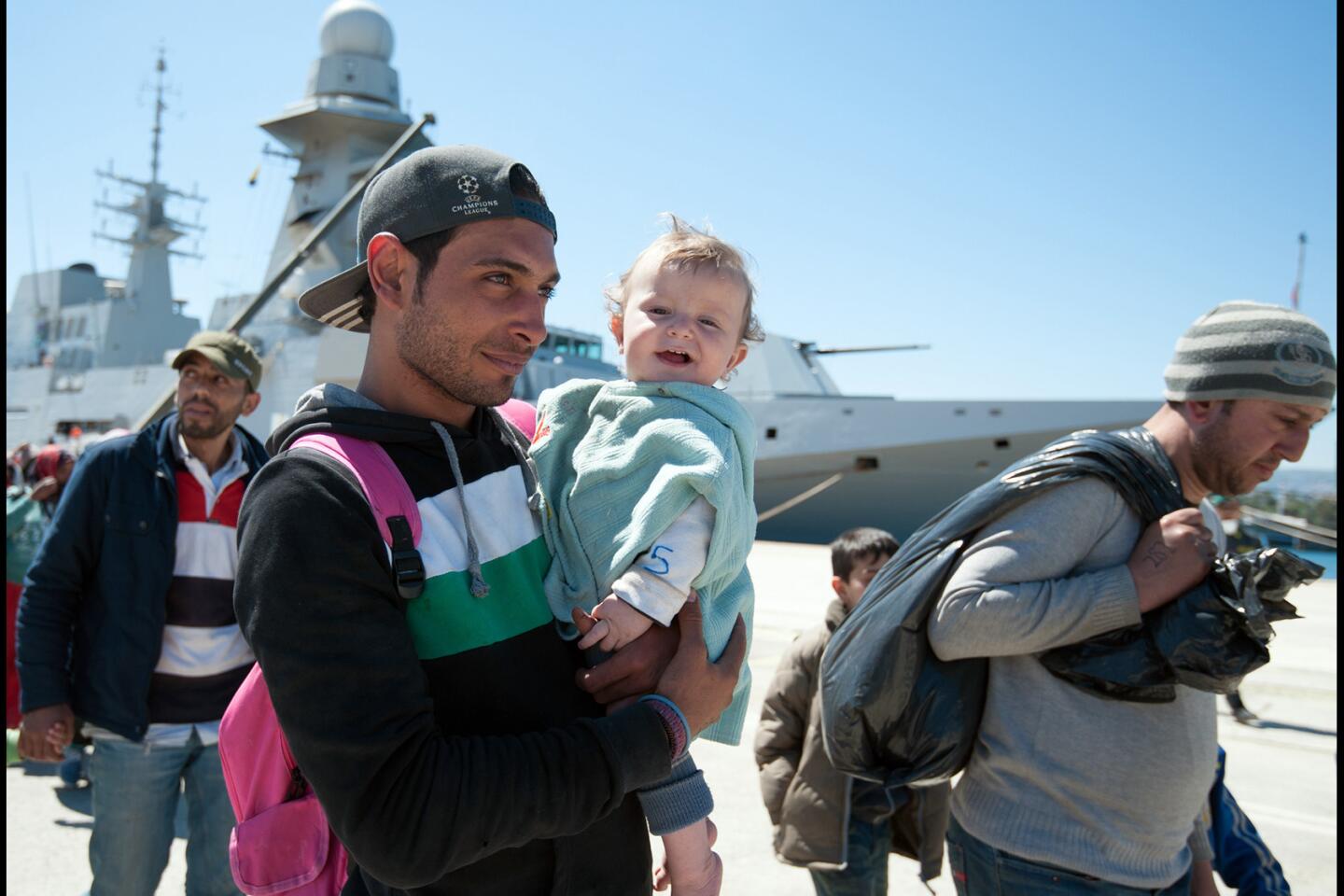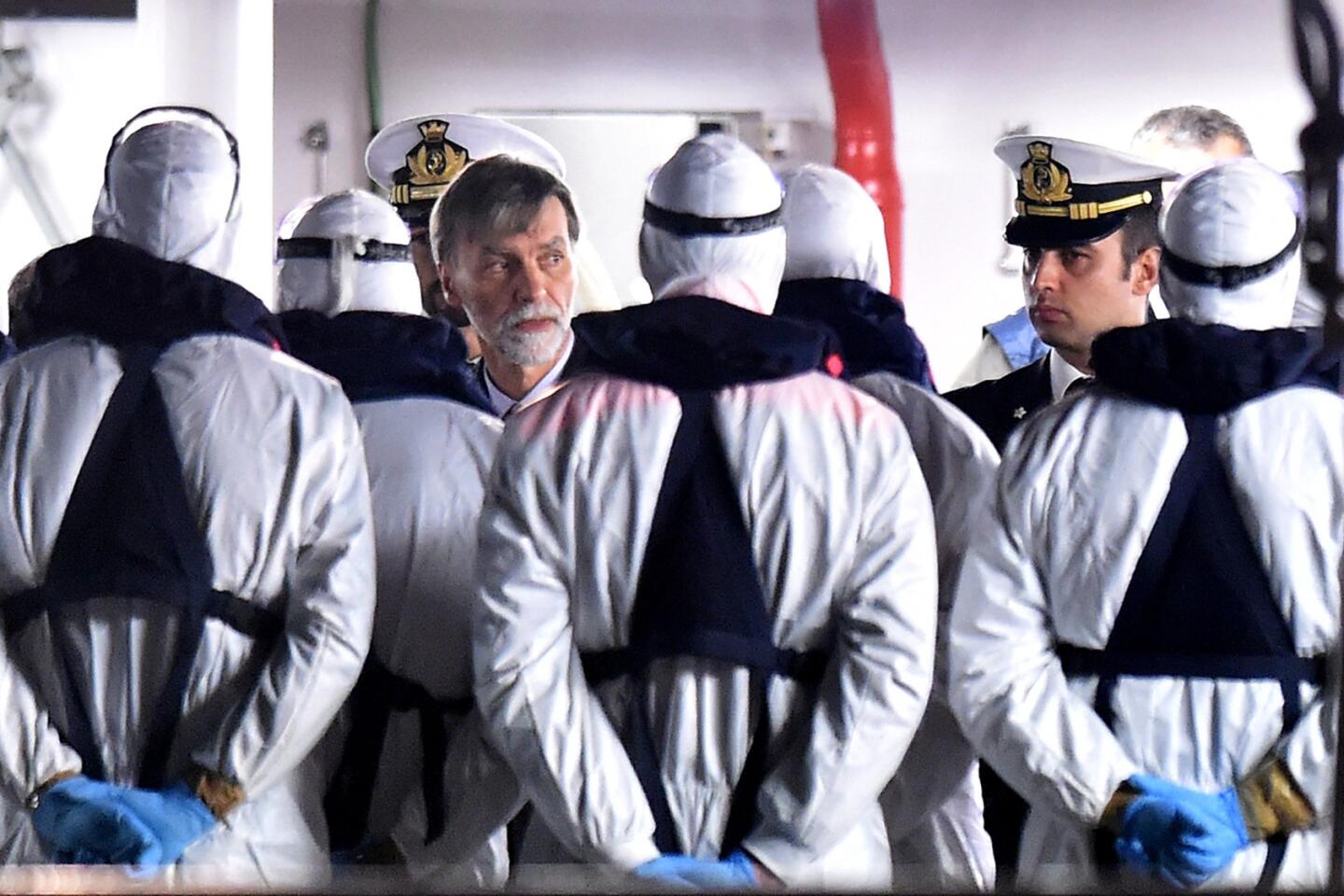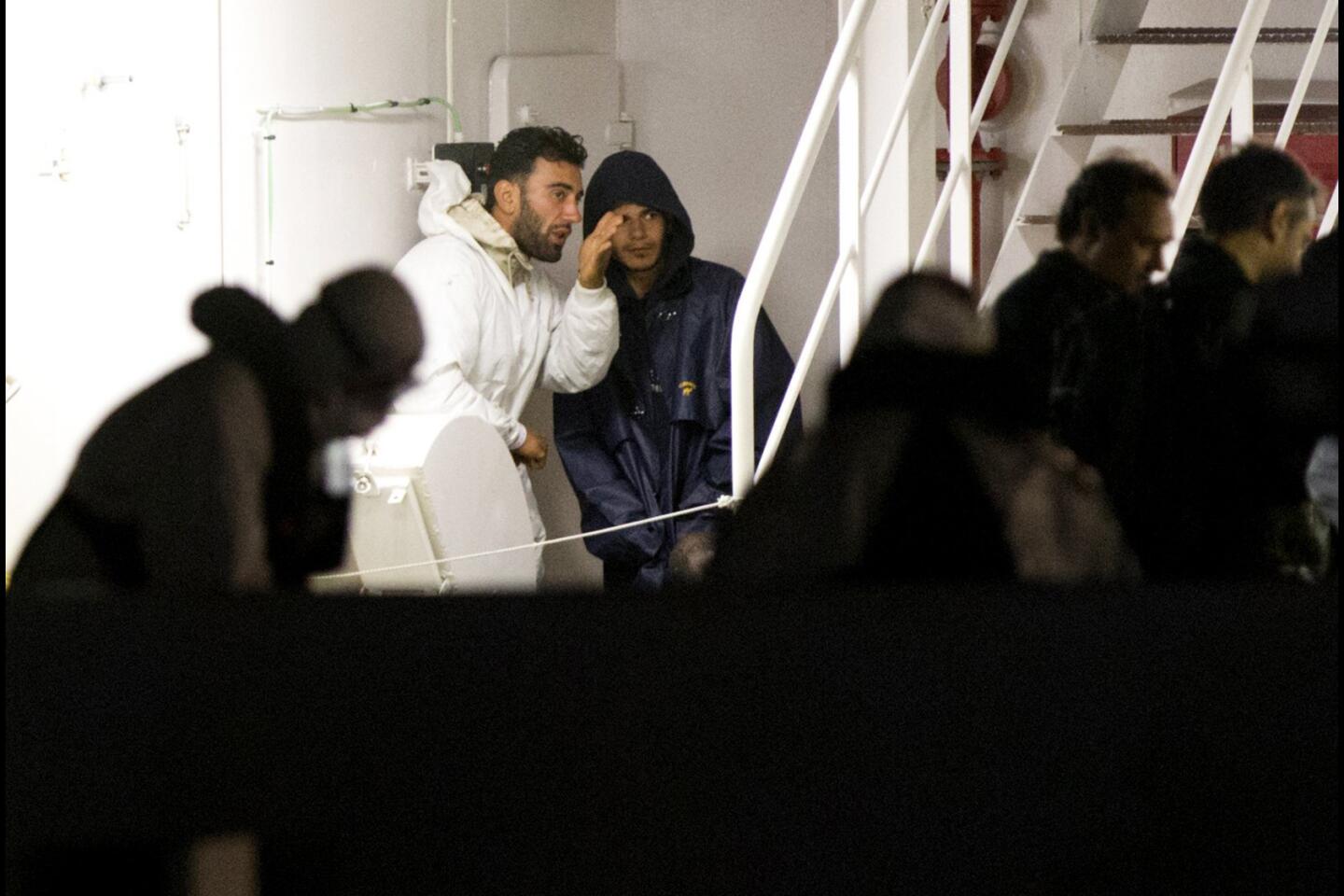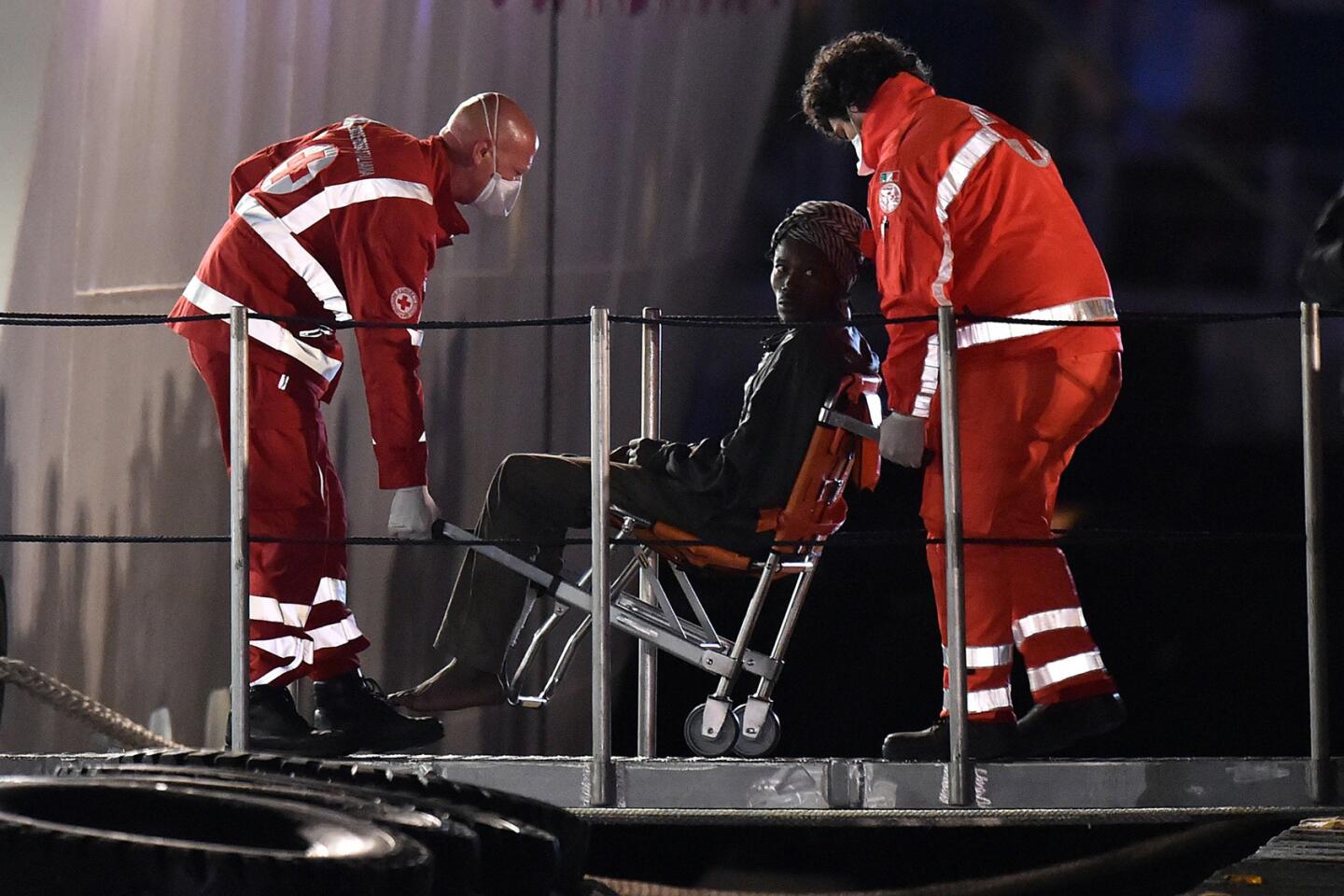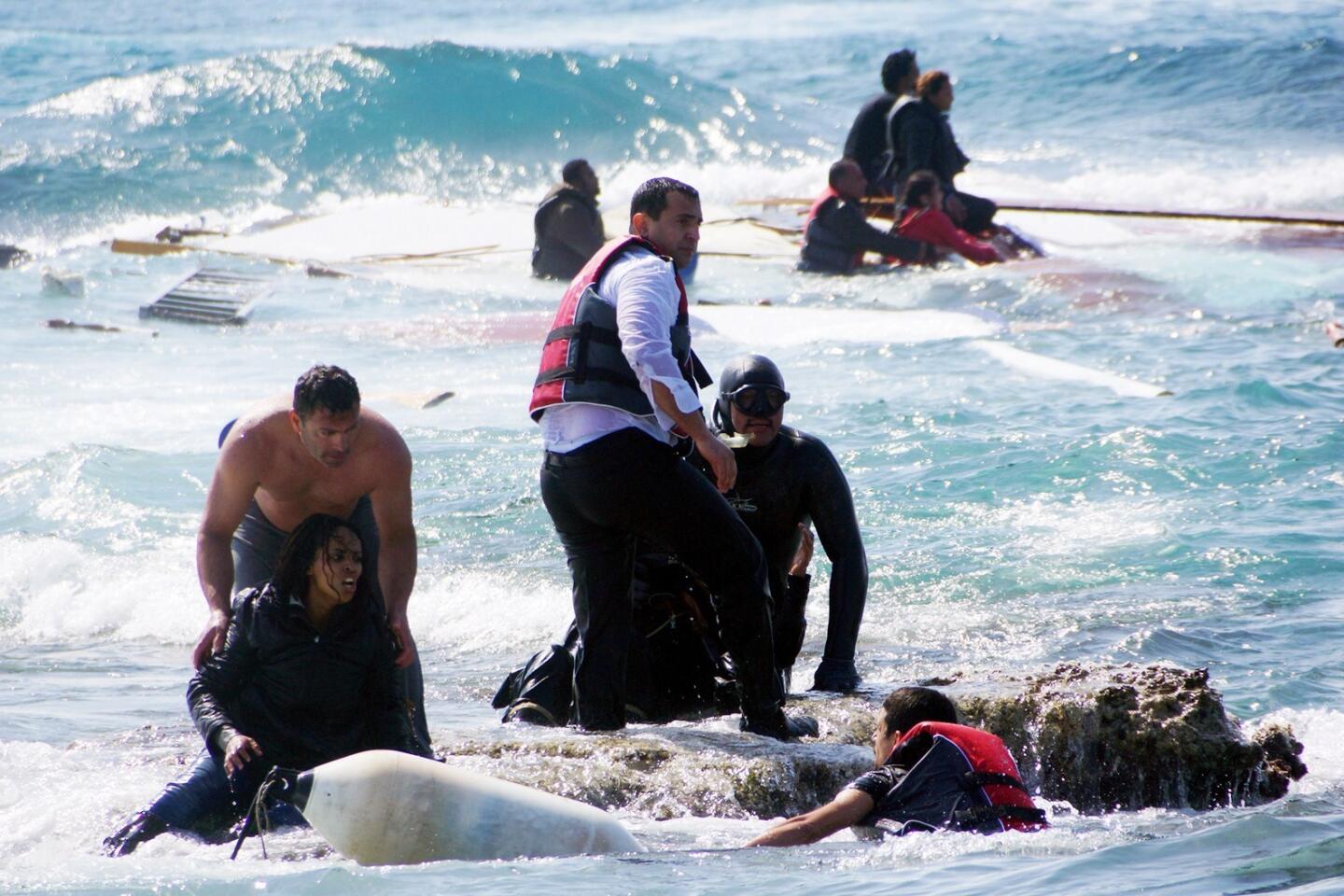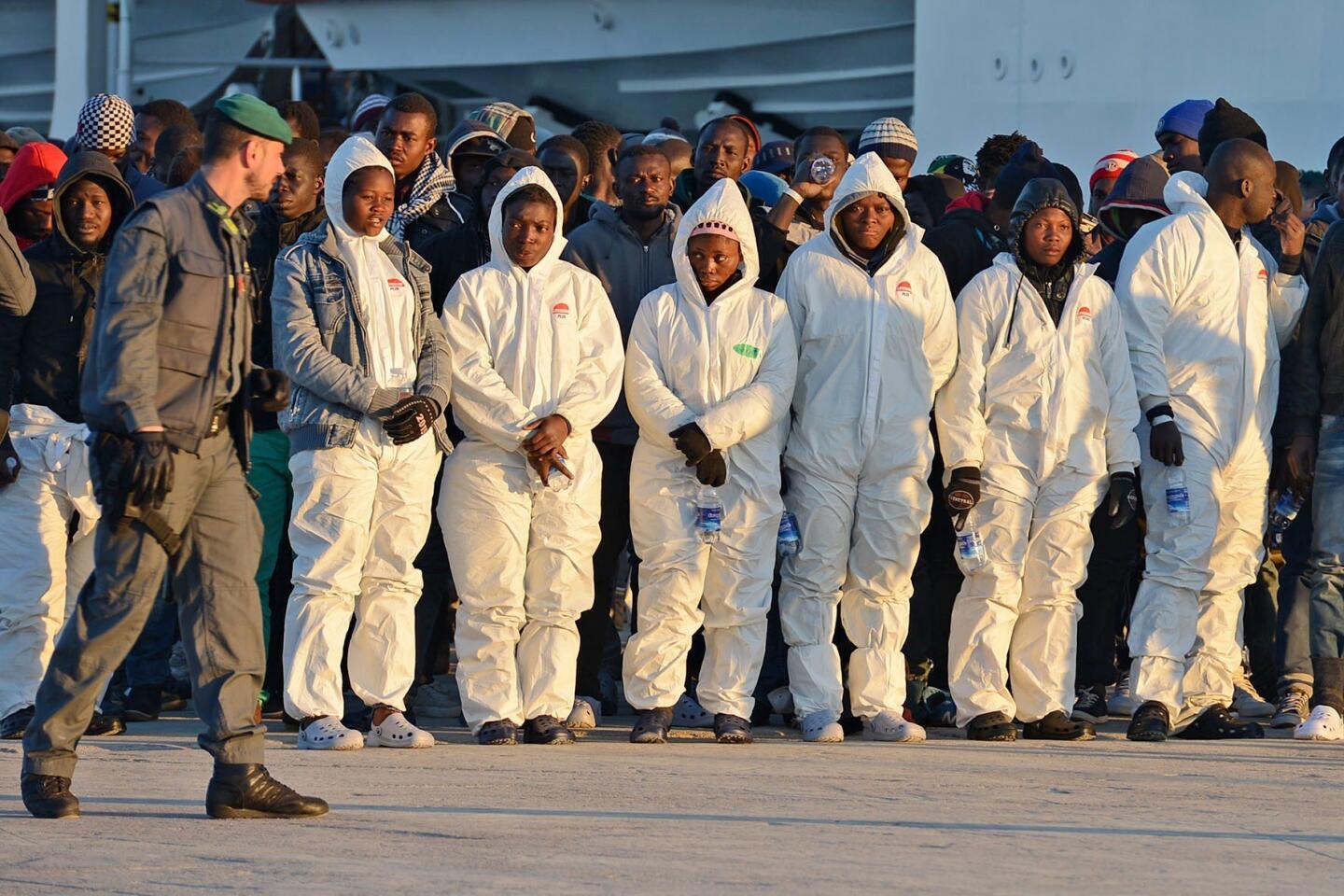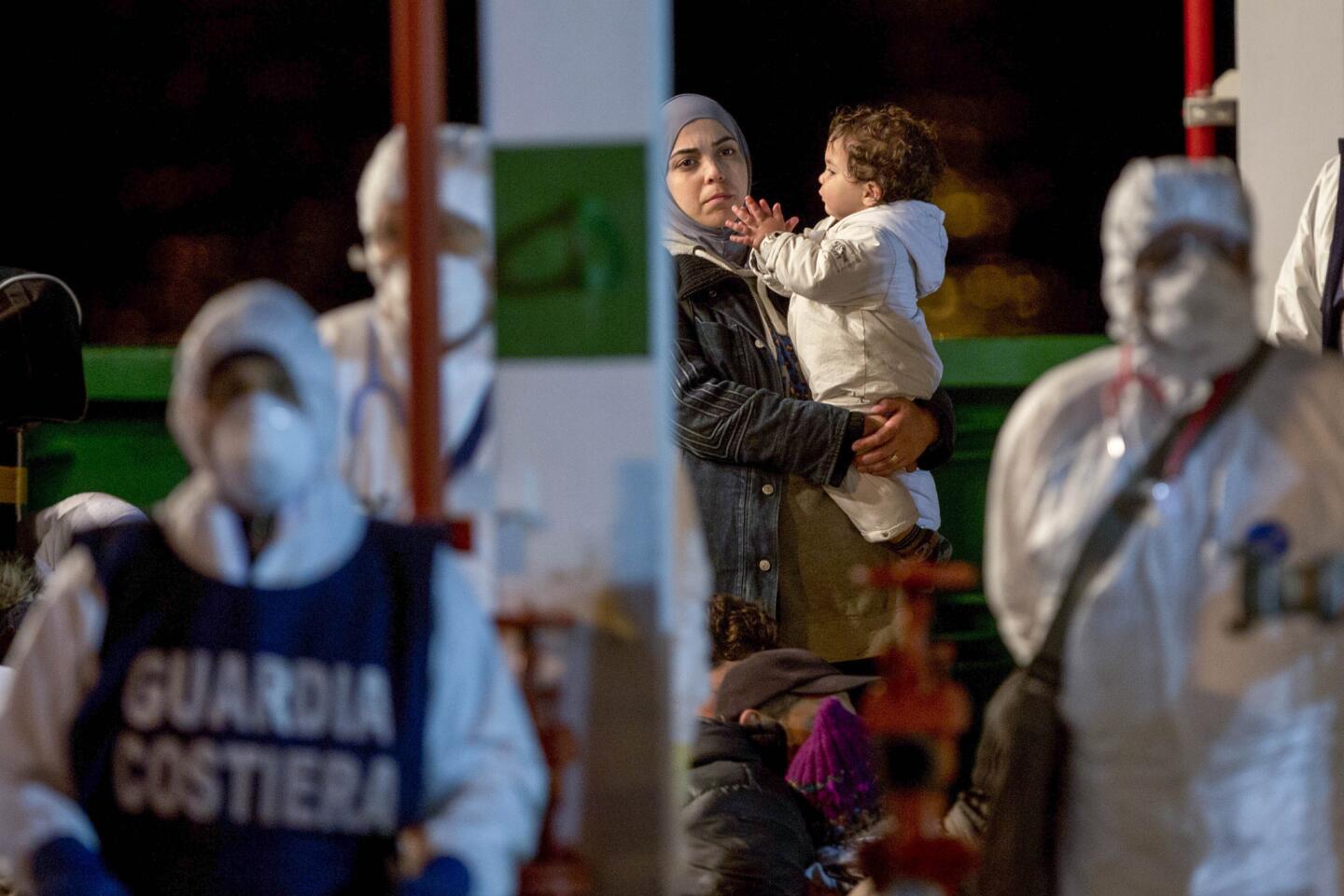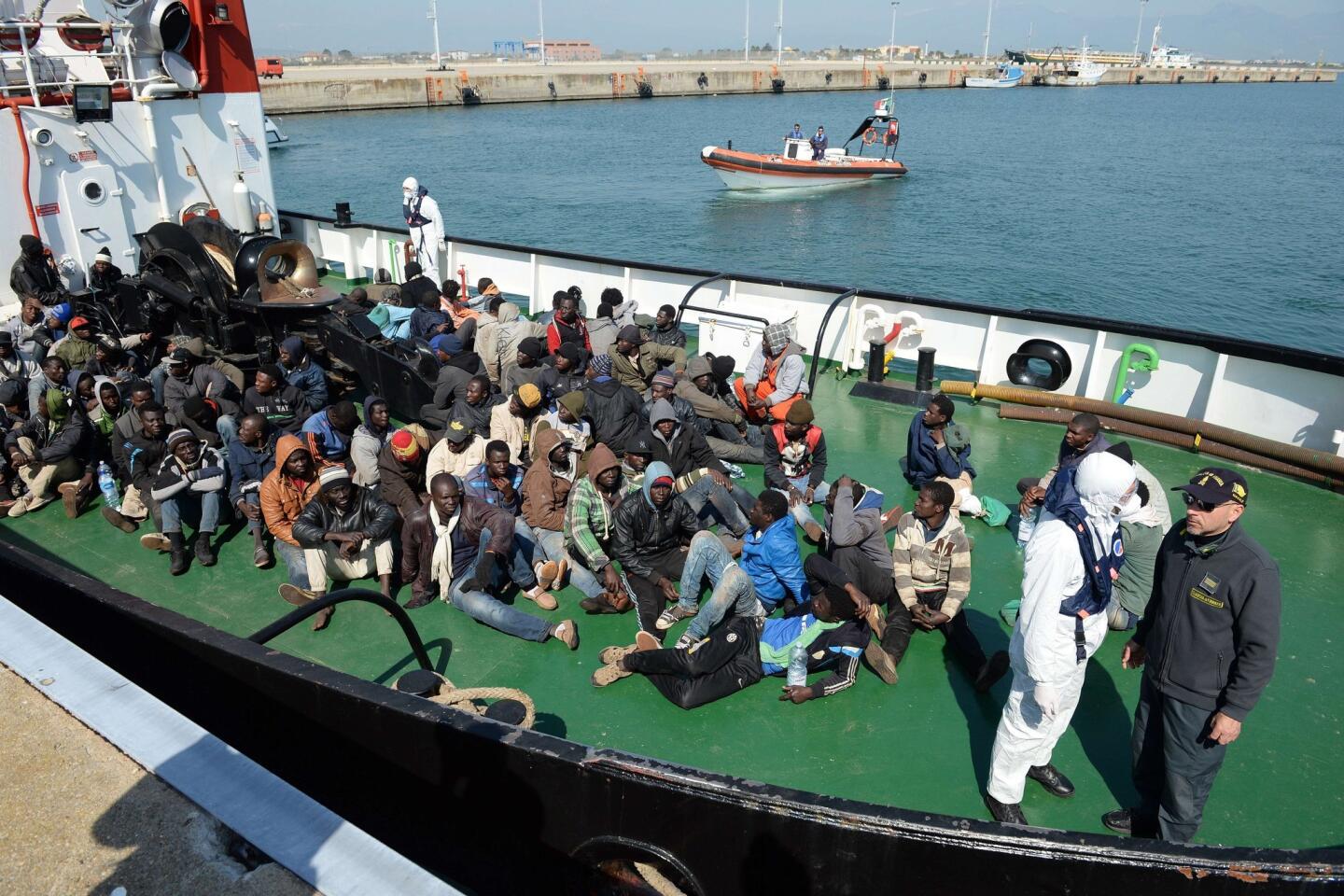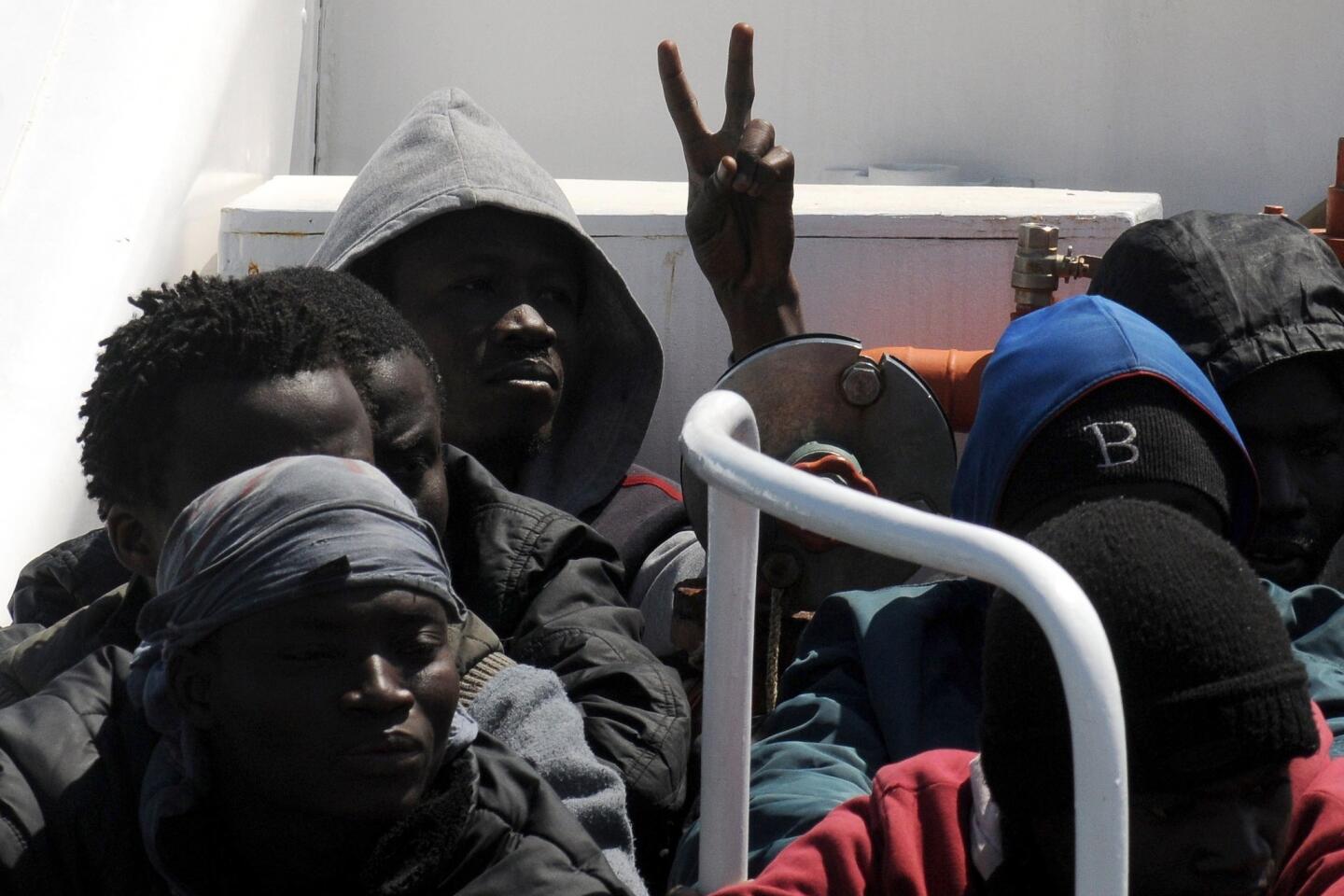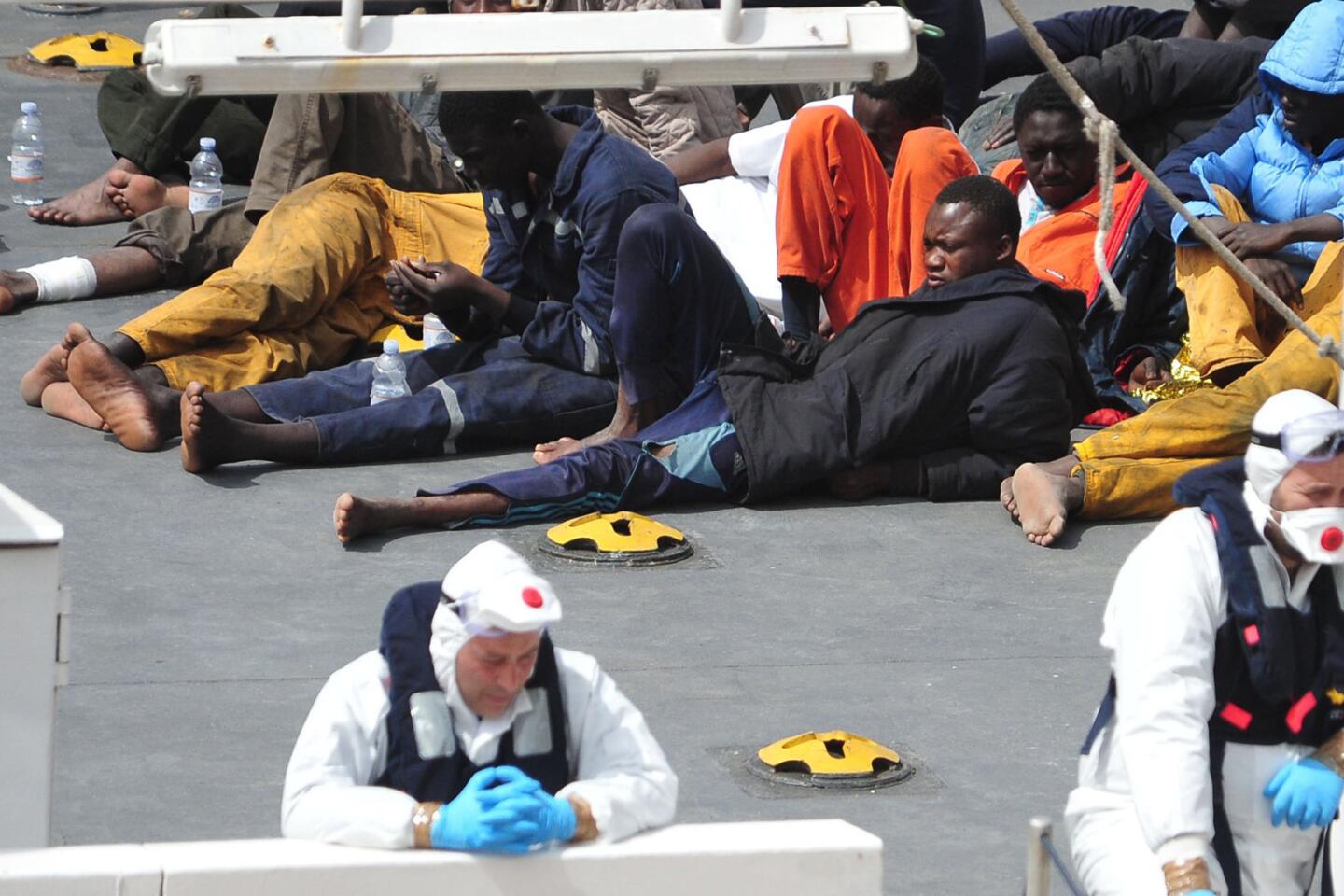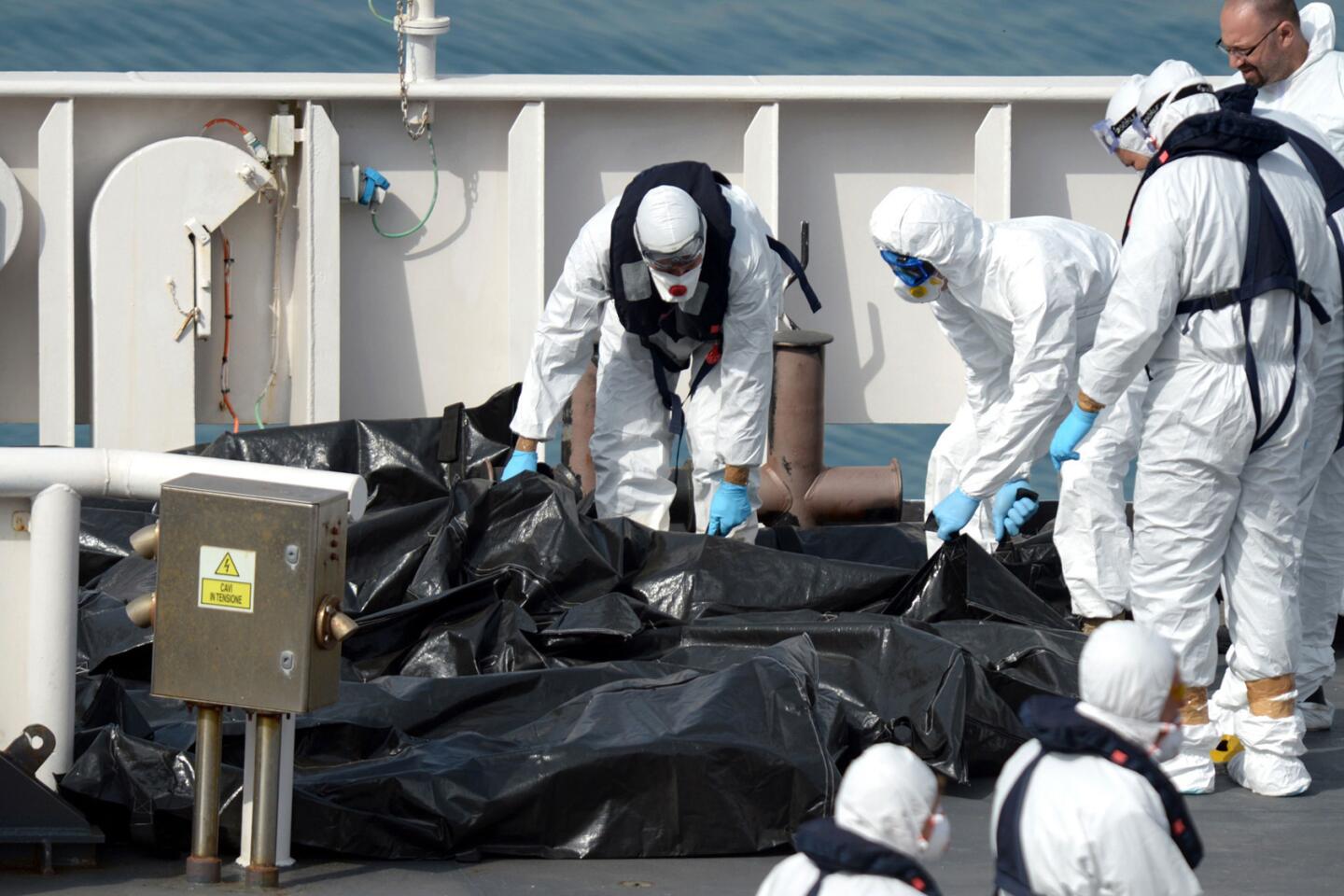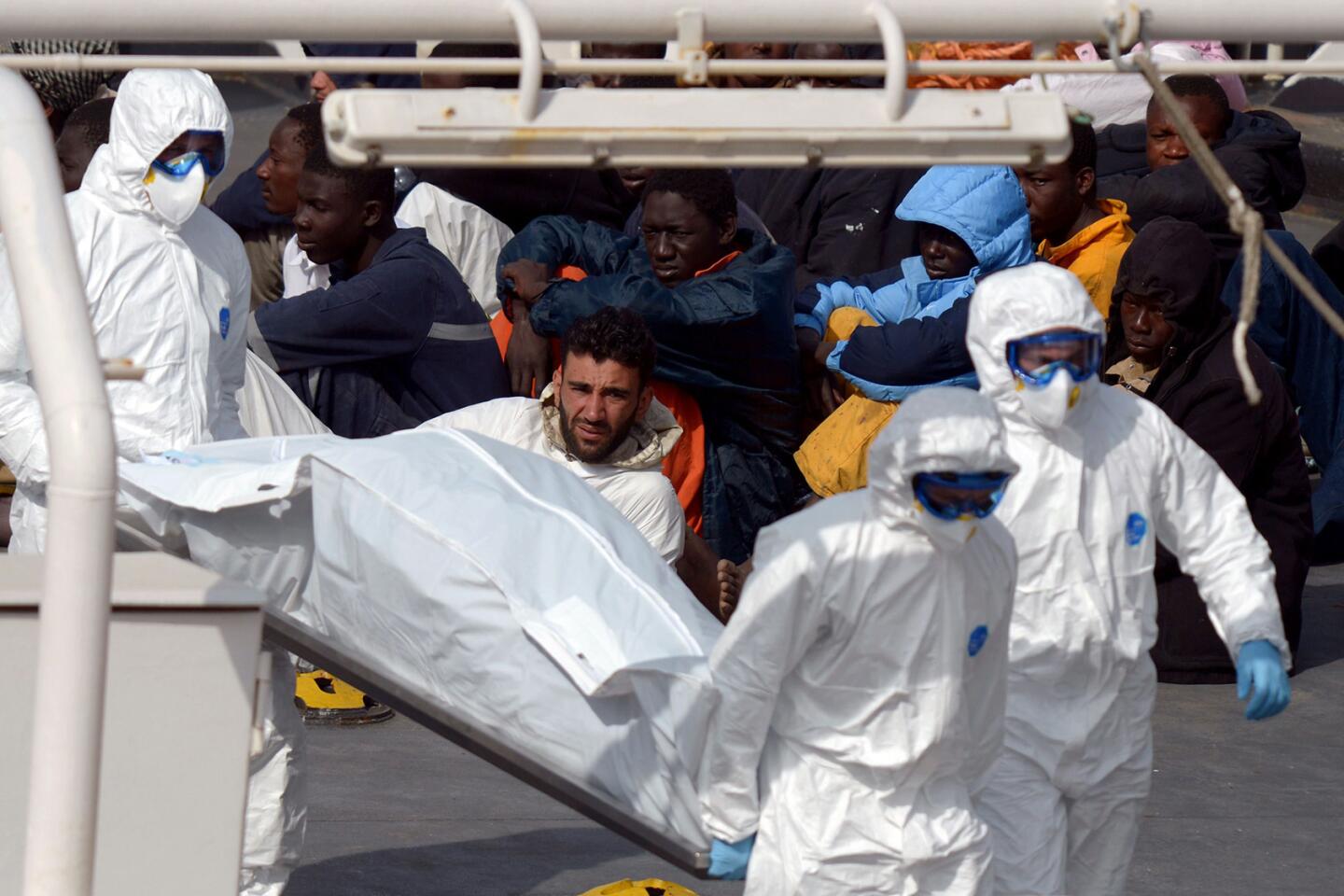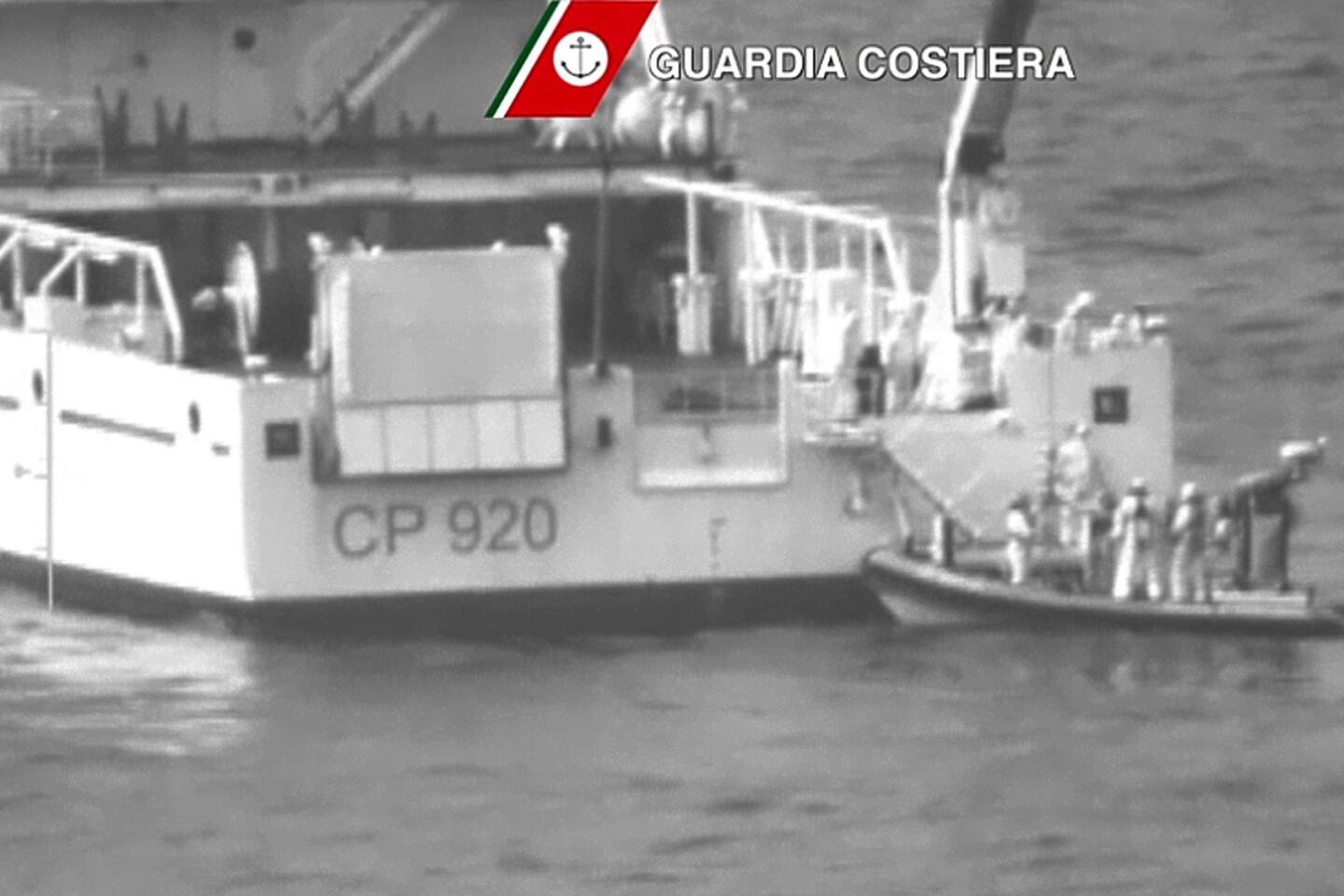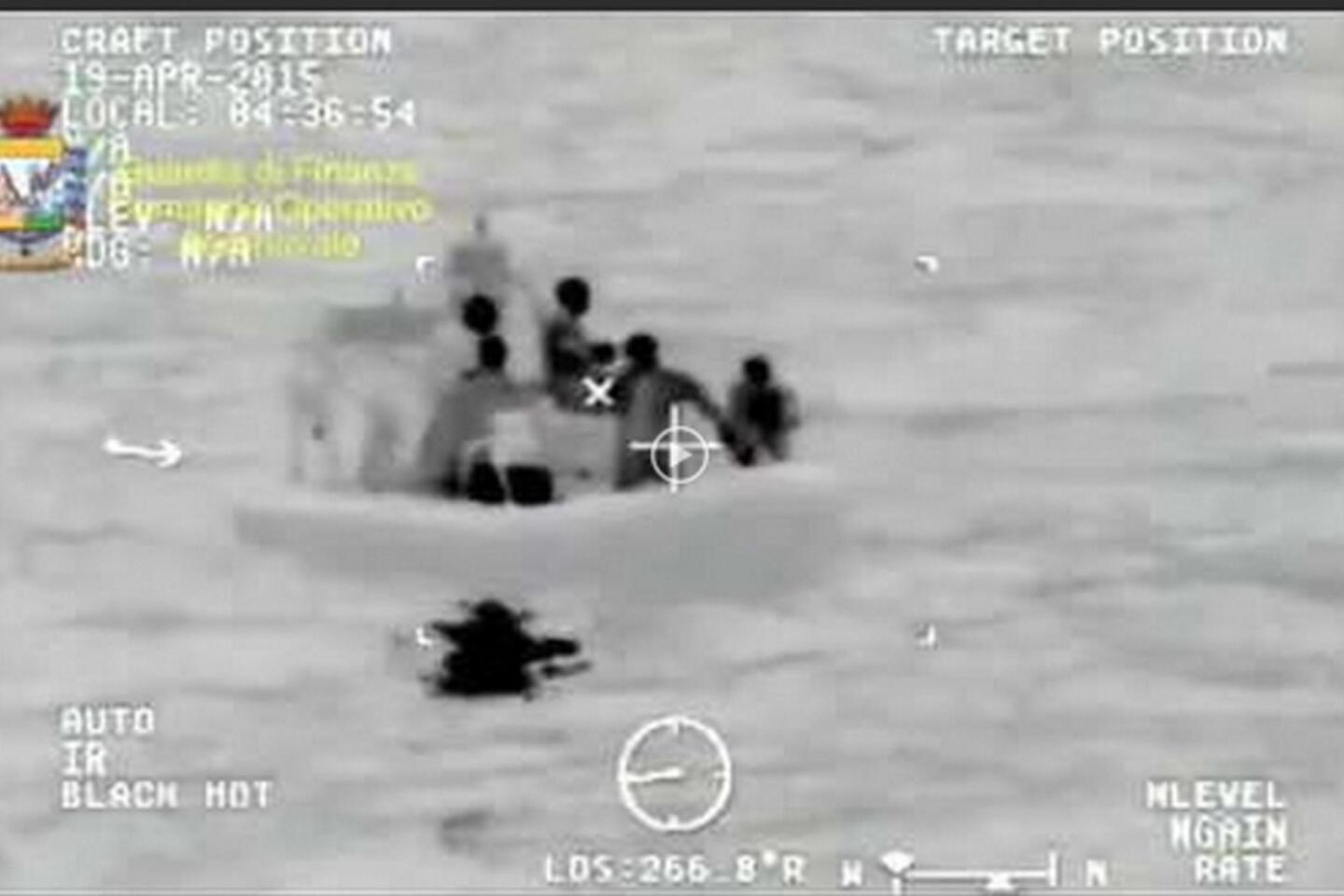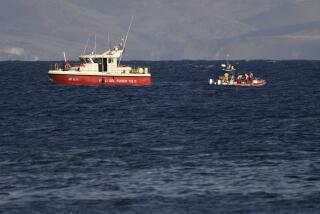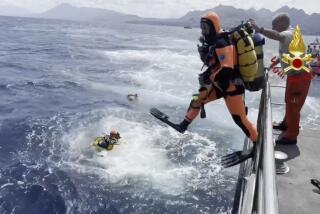As many as 950 may have been on migrant boat that capsized off Libya
reporting from Catania, Italy — Hundreds of people were feared lost in the Mediterranean on Sunday after a boat carrying migrants toward Europe capsized off the Libyan coast, authorities said, marking what appeared to be the latest in a series of mass drownings.
A survivor from Bangladesh who was flown by helicopter to Sicily told Italian police that there were 950 people on board the vessel, more than the 750 suggested initially. In either case, the disaster could be the deadliest to date among many tragedies on the hazardous migrant route from North Africa to Europe.
As of Sunday afternoon, just 28 survivors had been found alive as search-and-rescue vessels and aircraft combed the area, officials said. The Italian government said that 24 survivors had been picked up from the water.
“They are literally trying to find people alive among the dead floating in the water,” Maltese Prime Minister Joseph Muscat told the local press.
Italian and Maltese vessels were searching the area, along with merchant ships, officials said.
Authorities said passengers were believed to be from Algeria, Egypt, Somalia, Nigeria, Senegal, Mali, Zambia, Bangladesh and Ghana, and included 200 women and 40 to 50 children.
Police said in a statement that the Bangladeshi survivor had said many passengers were locked in lower decks and unable to escape when the boat capsized. With so many people crammed onto the boat, it would have taken little to unbalance the ship and make it capsize, then sink.
The boat had departed from a port about 30 miles from Tripoli, he added. Other survivors, who are still at sea on an Italian coast guard vessel, are now being questioned, the statement added.
A U.N. official initially said that warm waters in the area, hovering at about 63 degrees, had lifted hopes of finding more survivors as numerous ships gathered at the site of the wreck. But as the day wore on, rescuers reported finding only debris and fuel on the surface where the vessel had sunk.
The stricken boat was reported to have capsized late Saturday or early Sunday some 70 miles north of the Libyan coast, the embarkation point for many Europe-bound vessels packed with migrants. It was first spotted by a cargo ship, the King Jacob, which had previously been asked by authorities to intercept migrants in distress.
Most migrants on the Mediterranean boats are from sub-Saharan Africa, but their ranks include Syrians and others escaping warfare and poverty and hopeful of starting new lives in Europe. Many women and children are among those who risk the hazardous passage.
Initial reports indicated that boat tipped over when panicked passengers shifted to one side as a merchant ship approached at about midnight Saturday in a bid to rescue those on board the rickety craft. Such scenarios have occurred in previous instances of capsized migrant craft, experts say.
A crisis has gripped the southern Mediterranean as spring-like weather has apparently prompted many migrants to risk their lives on overcrowded and unsound boats bound for Italy. Extensive smuggling and criminal networks in Libya and elsewhere in North Africa help facilitate the illegal traffic.
Officials say the unstable political situation in Libya, which has been largely without a functioning government since ex-strongman Moammar Kadafi was overthrown in 2011, has contributed to the escalating crisis.
Italian Prime Minister Matteo Renzi, speaking at an event in northern Italy, declared that Europe was experiencing “systematic slaughter in the Mediterranean.” Whether the latest incident would result in a new European strategy to confront the crisis remained unclear.
Officials have reported soaring numbers of deaths of migrants in the Mediterranean.
Before the latest incident, some 900 migrants had already perished in Mediterranean crossings so far in 2015, compared with 96 during the first four months of 2014, according to the International Organization for Migration, a Geneva-based group.
Last week, at least 400 Europe-bound migrants are believed to have perished at sea when a wooden fishing boat capsized, the IOM said. One third of those on board were reported to have been women and children.
That incident was believed to have been caused by migrants surging to one side of their boat when they saw rescuers arriving.
For all of 2014, the group said, more than 3,200 migrants lost their lives during the treacherous sea crossing. In the week before Saturday’s accident, the group said, Italian maritime forces and commercial ships had rescued about 10,000 migrants.
An Italian navy search-and-rescue operation, known as Mare Nostrum, was called off last year amid claims that it was encouraging migrants to set sail.
However, since it was replaced by a smaller, European Union patrol known as Triton, sailings have continued at about the same level, while drownings have soared.
In his weekly address to followers in St. Peter’s Square, Pope Francis called for greater efforts to avoid such disasters. “I make a heartfelt appeal to the international community to react decisively and quickly to see to it that such tragedies are not repeated,” he said. He asked the crowd to pray “for these brothers and sisters.”
At a news conference in Rome, Renzi said the incident would have happened even if Mare Nostrum had been operating.
“There was a ship next to the boat when it sank,” he said. “This is very important.” Renzi urged international cooperation to halt instability in Libya, which has created a power vacuum that allows traffickers to operate.
Nevertheless, Loris De Filippi, president of the Italian branch of the nonprofit organization Doctors Without Borders, blamed the European Union’s decision to provide a small-scale rescue effort this year.
“A mass grave is being created in the Mediterranean Sea and European policies are responsible,” he said in a statement.
“Faced with thousands of desperate people fleeing wars and crises, Europe has closed borders, forcing people in search of protection to risk their lives and die at sea,” he said.
“European states must immediately launch large-scale search-and-rescue operations, with proactive patrolling as close as possible to Libyan shores,” he added.
António Guterres, the U.N.’s high commissioner for refugees, agreed. “This disaster confirms the urgent need to relaunch a robust rescue operation at sea and to establish credible, legal routes to reach Europe.”
Special correspondent Kington reported from Catania and Times staff writer McDonnell from Beirut.
Follow @mdcneville for news from the Middle East
More to Read
Sign up for Essential California
The most important California stories and recommendations in your inbox every morning.
You may occasionally receive promotional content from the Los Angeles Times.
